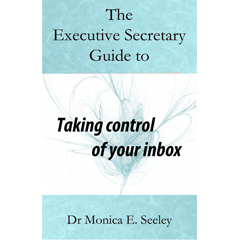Top tips from Mesmo Consultancy (and Associates) on how to save time and improve business and personal performance by ‘Taking Control of your Inbox’ and using proper business email etiquette.
One way to boost our will power and focus is to manage our distractions instead of letting them manage us.
Daniel Goleman
Are you distracted by each and every new email as it arrives in your inbox? Over the last few weeks it amazed us as to how many people still have all those new email alerts turned on. The reasons why range from ‘we are acting for clients in the middle of a merger’ to ‘my boss will ask for more coffee during a meeting’. The latter might just be valid, but and it’s a big but, often better decisions are made given a little extra time and space to think. Ever looked back and thought if only?
As to the second reason, can the boss not phone, walk to their PAs office? Would not any self respecting PA check on such matters during important meetings?
We live in an age of instant gratification so the faster we reply the better we feel. Or do we? Constant distractions have been shown irrevocably to reduce our performance. Moreover our brain becomes re-wired to think tactically and we lose the ability to think strategically. This is one of the first major challenges facing Sophie in Dr Seeley’s new book Taking Control of Your Inbox. Max the email genie from the Clean Inbox Kingdom provide some solutions.

Clients who have switched off all the new email alerts are always amazed at how much more they achieve in a day. As one client said last week – ‘you made me realise that the inbox is no more than a post box. When ready I will go and see that the postman has for me’.
For more help to take control of your day why not invest in a copy of Taking Control of Your Inbox (and life)?
Tags: Clean Inbox, Daniel Goleman, Dr Seeley, New email, out of office message, PA, Pomodoro, Swiss Cheese, Taking Control of Your Inbox
Two must reads for all managers and directors concerned with effective use of technology (and especially email) to improve the bottom line of their business regardless of size.
2. Is technology really helping us get more done? Twenty years ago it was predicted that new technology would help improve productivity. Now suffering acute email overload and swamped with social media alerts, most office workers feel far less effective. What went wrong? Metcalfe’s law says that value of technology increases with the square of the number of users. But the dark side of this law posits that as the cost of communications decreases the number of interactions increases exponentially as does the time to process them. Have we reached the tipping point?
And for those responsible for well-being
3. The best temperature for a good night’s sleep. The article reinforces the importance of switching off all digital and mobile devices too. A subject we have discussed before.
For the technology minded readers
4. Smartphone typing apps – a review of some of the more useful app and especially in the light of Microsoft’s take over of SwiftKey. For Android users only see this CNET review.
Remember though that using a smartphone does not excuse you from sending email PEARLS rather than lead balloons which can destroy you and your business.
Tags: cyber crime, email overload, Email PEARLS, Productivity, well being
Five years ago the CBI complained school leaver’s low level of literacy skills. More recently poor English skills have been cited as more damaging to business than the digital divide. Poorly structured emails, and especially long rambling ones remain the bane of many people’s lives and particularly those who pick up their emails on mobile devices and/or suffering from chronic email overload.
‘Pen your Email in Simple Language’ is the seventh commandment of our Smart Email Management charter but clearly an aspect of email etiquette which is frequently ignored. Yet it save times and reduces the potential for misunderstanding. If you do not receive a response to an email, it is often not so much because the recipient is busy but because you have written it poorly.

George Orwell
from www.counter-currents.com
George Orwell laid out six rules for effective writing, which have served many authors.
These rules are as relevant now as when he wrote them over sixty years ago. In the digital age I add a seventh rule – start an email with a one sentence executive summary of what the email is about and what action is expected.
What email etiquette tips can you offer for ensuring you send the right message right first time by penning your email in plain language?
Tags: CBI, Counter Currents, email etiquette, email management, George Orwell
Three themes stood out over the past few weeks: the obvious one of new year’s resolutions and predictions; our skill or lack of it with the English language and of course the Court of Human Rights ruling in favour of an employer who monitored an employee’s personal emails.
2016 predictions and resolutions
 Set goals rather than resolutions. Did you set yourself up for failure just a week into the new year by setting a series of new year’s resolutions which within a week you had broken? Well it turns out that it is better to establish some SMART goals against which we can monitor our progress. It’s never too late to re-calibrate and set new goals.
Set goals rather than resolutions. Did you set yourself up for failure just a week into the new year by setting a series of new year’s resolutions which within a week you had broken? Well it turns out that it is better to establish some SMART goals against which we can monitor our progress. It’s never too late to re-calibrate and set new goals.How clearly do you communicate?
Monitoring employee’s personal emails
Tags: corporate email etiquette, corporate email overload, cyber crime, Lucy Kellaway, Mesmo Consultancy, SMART goals

Email PEARLS for brilliant email etiquette
Are your emails PEARLS designed to send the right message right first time or lead balloons which might lead to an impending email disaster?
PEARLS are good corporate email etiquette and will enhance your digital dress code just like real ones can add a touch of glamour to anything from jeans to haute couture.
Click here to check your email etiquette.
Tags: corporate email etiquette, email etiquette, Email PERALS